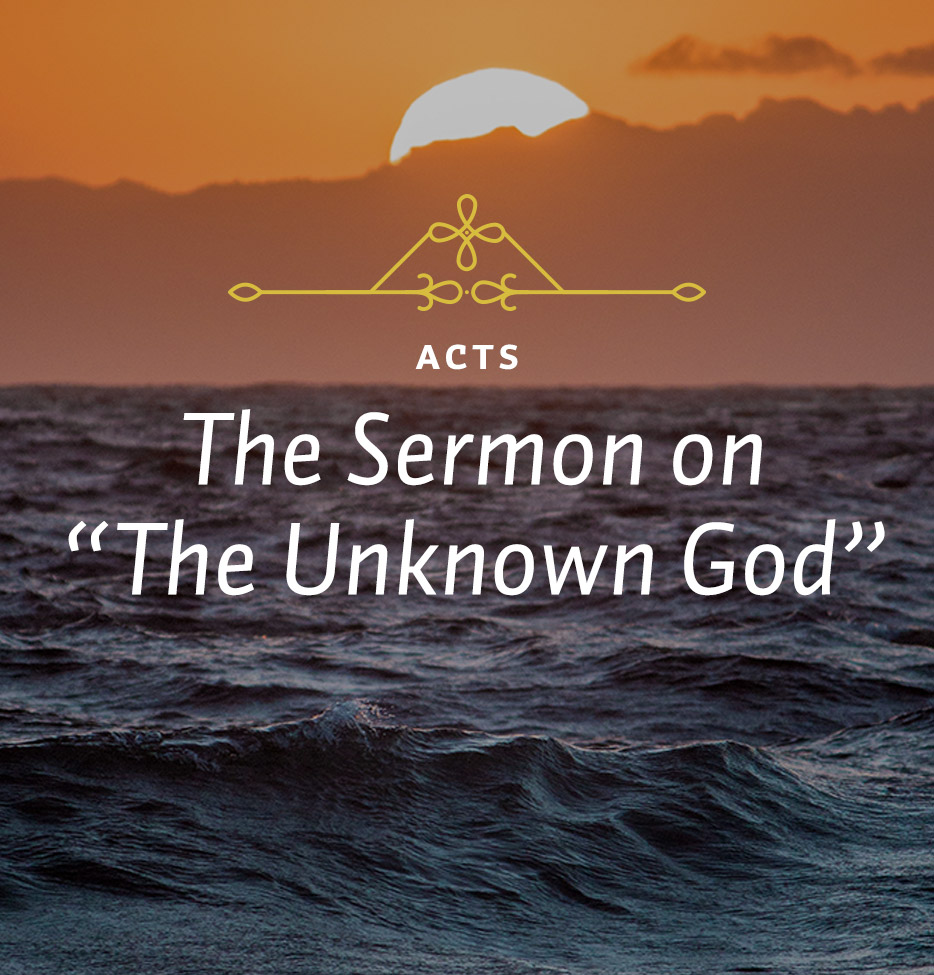In yesterday’s study we read about one type of philosophy Paul encountered in Athens, which was Epicureanism. In today’s lesson we encounter a second type.
2. The Stoics. The second group of philosophers were Stoics. Their school had been founded by a man named Zeno. There were two Zenos. This one had come from Cyprus and had taught that life is filled with both good and bad, that you cannot really avoid the bad but that what you have to do is (as we would say) “grin and bear it.”
That is stoicism. It says, “I can’t control everything that is going on out there, and things are going to happen to me that I will not like. But I am still in charge of myself. Therefore, I am going to stand tall, stick out my chin, and take whatever comes.” The Stoics were not ignoble. These people were willing to endure hardship for some good, and they contributed much to society. Yet theirs was still a rather sad philosophy.
There are many Stoics around us. They are people who have no sense of a divine presence or of divine guidance in their lives. They just do the best they can. If bad things come, well, they think they just have to be strong and endure it.
Luke tells us that what bothered Paul most was the Greeks’ idolatry, their worship of false gods. The reason is obvious, isn’t it? The idolatry was father to their philosophy. This is because our idea of God (or denial of God) will always give shape to what we think. If we have a high idea of God, if we know the true God, then we will have a godly, uplifting, helpful, positive philosophy. But if we do not have a knowledge of the true God, if instead we have a god who is made merely in the image of men or, as was the case in those days, as things less even than God intended man to be, then our idea of man will descend to that level and our philosophy will become as degenerate, negative and despairing as the philosophies of the Stoics and Epicureans.
When Paul looked around the city, he saw idols everywhere. One of the ancients said that in Athens it was easier to find a god than a man, meaning that the city was filled with idols. Paul realized that idolatry was the fundamental problem with that society.
I wonder if we share his insight today. Idolatry is the basic problem of our society. We read in the papers about a breakdown in moral values; lack of commitment by people, whether that be to other people, causes or standards; dishonesty in many forms; and irresponsibility. But do we realize that the reason for the breakdown is spiritual? If people have a concept of God that is noble, they will find it ennobling and will do better. But if we lose sight of God, as America has in our day, then we lose sight of the only thing that can lift ours or any other civilization up.
Notice that when Paul got to Athens he was not overawed with it, as we might expect him to have been. He had respect for it because it was an intellectual center, but he was not overawed by it. Rather he analyzed it rightly and responded to it as a Christian. We need that today. We need Christians who have proper respect for the achievements of our time, who do not despise what has been done in science and other intellectual pursuits, but who at the same time are not overawed by these achievements but rather are able to see the limits of our predominantly secular culture and respond to it helpfully with the Word of God.






